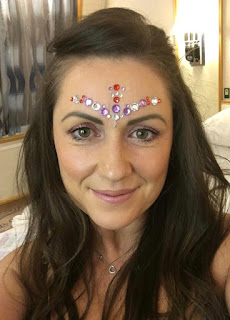MECC Patient story – Microvascular 6th nerve palsy
A 67 year old male attended the Emergency Eye Department, complaining of double vision (diplopia). The patient was very anxious, having used an online search engine to look up the causes of diplopia.
The patient was significantly over weight. He was taking medication for high blood pressure, high cholesterol and Type II Diabetes. The patient admitted that he didn’t always eat as he was advised to.
The orthoptic finding were in line with a left 6th nerve palsy. I explained this to the patient, and discussed the possible causes. I advised the patient that the most frequent cause of 6thnerve palsy is microvascular dysfunction. This can be as a result of a number of factors, including; obesity, high blood pressure, diabetes and high cholesterol.
The patient was somewhat relieved, but still very anxious that there may be a more sinister cause for his symptoms. I reassured the patient that we would, of course, check him over thoroughly to ensure we didn’t miss anything which needed urgent treatment.
The patient admitted he did not really worry about his general health, and had not realised that the conditions he had been diagnosed with could cause serious health complications. I explained briefly how microvascular dysfunction can damage the small blood vessels, and how this in turn starves the surrounding tissues of the oxygen and nutrition it needs to function. The patient asked what he needed to do to get better. I advised that he follow the dietary recommendations he had been given, take his medications as prescribed, and try to be more active. I suggested that he see his GP if he needed further support to improve his general health.
The patient had a number of tests run, including a variety of blood tests and an MRI of the brain and orbits.
The blood tests showed no significant deviation from normal limits. The MRI scan showed no space occupying lesion. There was evidence of “chronic ischaemic change of the cerebral white matter” which was not thought to be of “clinical relevance”. It was concluded that the most likely cause of these changes is, again, microvascular dysfunction.
The patient was given this information at their follow-up appointment 6 weeks after presentation. In this time, the 6thnerve palsy had begun to recover. The patient had made some lifestyle changes, and was keen to improve his general health.
The patient returned 3 months after the onset of his symptoms. The 6th nerve palsy had totally resolved and he had been asymptomatic over the previous few weeks. The patient had also lost a significant amount of weight, and no longer needed medication to control his blood pressure, or for his diabetes.
I was very proud of the patient’s achievement, and very moved when he thanked me for the time I had taken to explain his situation. By making the patient more aware of the health risks associated with his general health concerns, it encouraged him to make positive changes to his lifestyle. The patient was discharged at this appointment. He returned 6 months after the onset of his 6th nerve palsy and gave a short interview which gave an insight into his journey. Below is a transcript of the interview:
Patient: I came in, I think it was the beginning of February, with developed double vision. I was referred by my GP and got an appointment the next day. So I came in the next day, quite worried, and was seen immediately. I spent about 4 hours initially, with various tests. I was told there had been a muscle collapse caused by a paralysed nerve, which was more or less 100% caused by diabetes. I was told I had to have a brain scan which scared the death out of me. So to cut a long story short, I had a very good experience on that first day. I came back for the brain scan and then came back a couple of months later to check on the double vision which had improved by then, and was more or less told after that two months that I could be discharged. And in the mean time I decided to take myself in hand as it were with this weight problem and diabetes. But it did take about 6 weeks before it had sunk in. I remember the date, it was March 21st, and today’s September the 2nd, and in that period I’ve lost nearly 5 stone. I’m really focussed on it and committed, I’ve got my targets, so by the time I go on holiday next June, next year, Iwant to be down to a normal weight. My blood sugar reading at my GP improved dramatically. It’s just a question of carrying on now. I can’t give up smoking I’m afraid, so that’s the next piece in the jigsaw. But I have been getting a lot of exercise, and I’ve been doing everything that I know about.
Orthoptist: Have you been doing it just yourself, or have you been to any support networks?
Patient: Well, I’ve joined with a friend, I’ve joined slimming world. That was at the beginning of May. I think they’re getting sick of me, because I’ve more or less since...I’ve won slimmer of the month twice, and slimmer of the week nearly about 6 times. To lose 5 stone in less than 6 months, I never thought I’d be able to do that.
Orthoptist: That’s an amazing achievement.
Patient: I never thought I’d be able to do it. If I can do it anyone can really.





